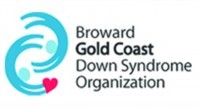Author:
JennifeAkr
There are early intervention programs, mandatory special education programs, speech therapy, occupational therapy and so on. Therapies can take up a lot of time in a child with Down syndrome\’s life.
But what about when they get older? What about when kids with Down syndrome become adults with Down syndrome? What services are available to help then? If you have a child in high school, these are questions that have probably been on your mind.
Adults with Down Syndrome
Many adults with Down syndrome will continue to live with their parents after they finish high school. In some cases, they can live in apartments, often with other people who have Down syndrome or other disabilities, along with a caretaker who helps take care of their needs. Some will live in group homes. Sometimes they can even live on their own with only a little outside help.
Services to Help Adults with Down Syndrome
Adults with Down syndrome are usually eligible for disability payments, which will help pay their living expenses. They are also usually eligible for food stamps to help with food expenses, and aides that can come and help with cooking and self-care tasks, as well as with budgeting and nutrition.
1. Adult ‘Foster Care’
Another situation is that sometimes adults with Down syndrome are placed with other adults who don\’t mind helping to care of them in exchange for some extra income – sort of a ‘foster parent’ system for the over 21 crowd. There are many different living options for adults with Down syndrome. This environment, where another adult helps with the needs of a Down syndrome adult is fairly innovative – but it may be ideal given your situation.
2. Jobs for Down Syndrome Adults and Vocational Rehabilitation
What, you may ask, will adults with Down syndrome do with their time? Some will be able to get jobs – perhaps working in restaurants, or at banks, or in the service industry. There are organizations called sheltered workshops that provide employment to people with disabilities, or day programs that your adult with Down syndrome can go to.
Vocational Rehabilitation, also known as Voc Rehab, can help adults with Down syndrome who want to find a job that is suited to their skill level and abilities. They can also provide job coaches. Job coaches learn the job with you and help provide guidance and instruction on the job.
3. Food Stamps
Food stamps: if you make below a certain income level, then you are eligible for food stamps. Food stamps can help you purchase food for the month. Instead of actual stamps, like they used to do, you will get an electronic debit card that you can use at most major food retailers to buy food. A certain amount is put on your card once a month. The amount differs quite a bit from state to state, and it also depends on how much income you have. Amounts generally range between $1-200 a month for a single person, but again, it varies.
4. Section 8 Housing
Some people with Down syndrome do move out on their own. For those who need assistance with paying for housing, and who live in the U.S., you can apply for a Section 8 Housing voucher. The waiting lists for these vouchers are usually quite long, unfortunately, so you should apply as soon as you know you might need help, and be prepared to wait. If approved, though, these vouchers can help a lot. Another thing to look for to help pay for housing costs are apartment buildings that have their own subsidies attached. These are apartments where if you qualify, you will only have to pay a certain percentage of your income to live there.
5. Medicare and Medicaid
Both of these programs are U.S. national health insurance programs that can help you pay for health insurance if you are either very low income, disabled, or both. Most people who receive disability payments usually get health insurance as well through one of these programs. This can help you pay for your doctors\’ visits, prescription medications, and any hospital stays that you have.
Your local branch of the Department of Human Services will best know how to direct you to the appropriate services that your young adult with Down syndrome is eligible for. Be sure to take advantage of whatever programs your city and state have. With a little help, your adult with Down syndrome can have a healthy and happy life for many years to come.
And to help you prepare, download my free guide ’12 Tips for New Moms of Down Syndrome Babies’. And to find additional free resources an excellent site is http://www.downsyndromehope.com. Visit it today to help you and your Down syndrome loved one lead a self sufficient life together.
About the Author




